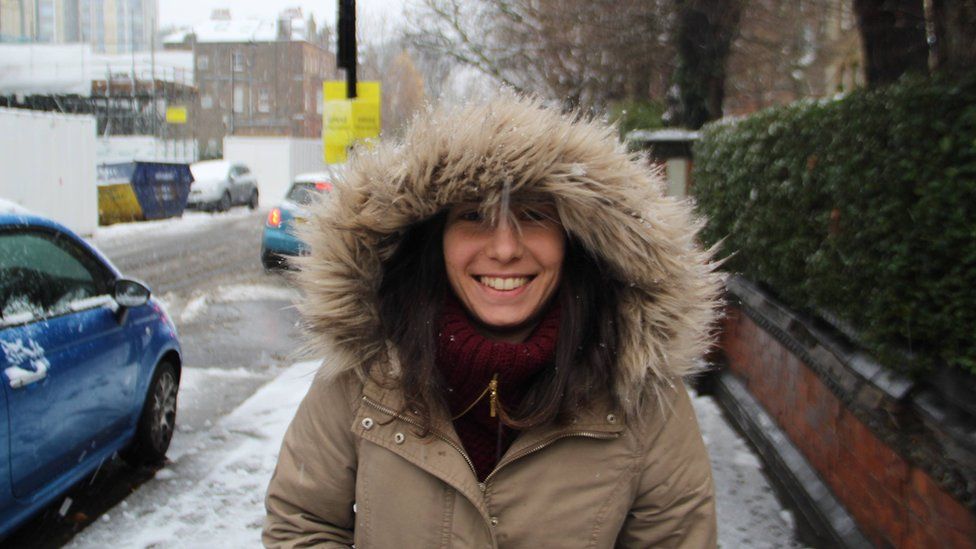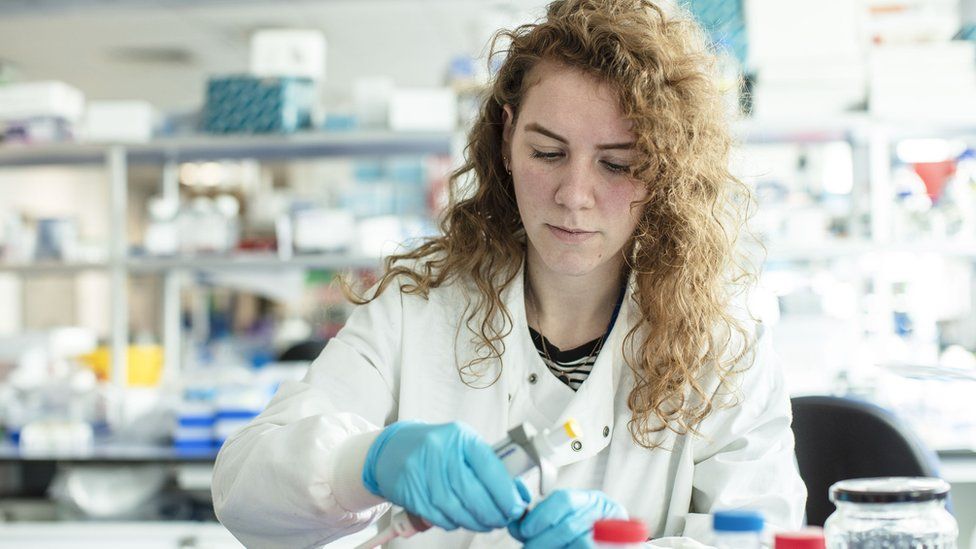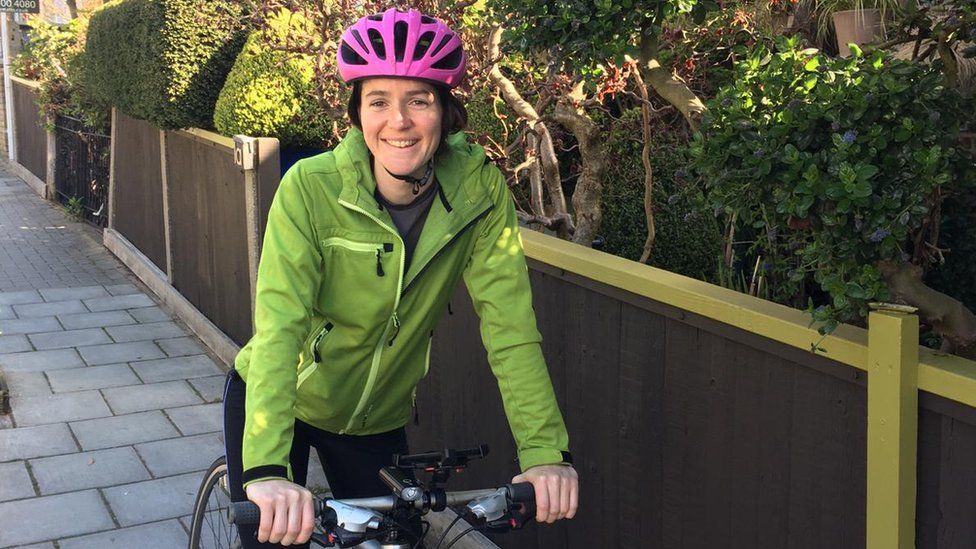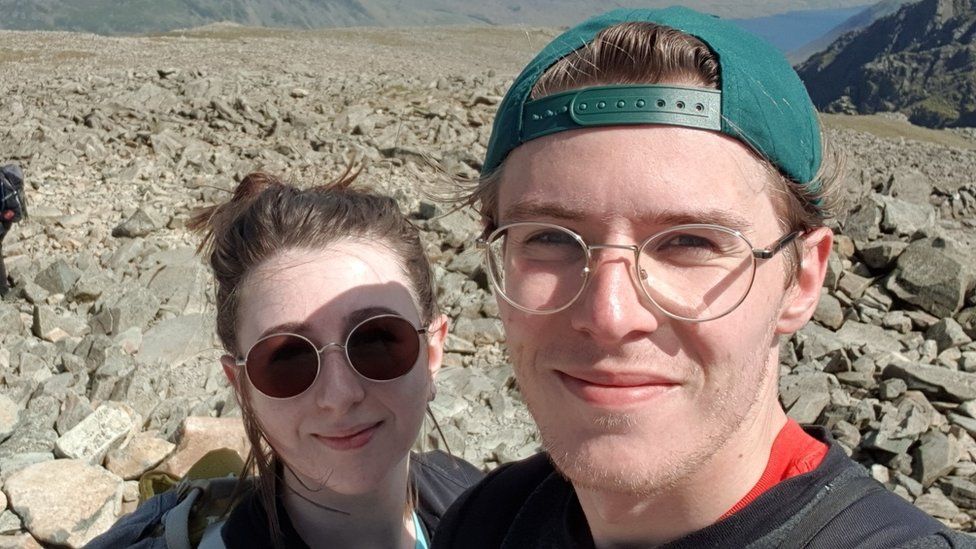Lab staff are working long unpaid hours to reduce the impact Covid is having on cancer research.

image copyrightDr Alba Rodriguez-Meira
“I’m so, so, absolutely tired.”
It’s pretty normal for lab scientists to work long, unsociable hours to run experiments.
But some young cancer researchers have told Radio 1 Newsbeat that they’re working longer, harder days, with no extra pay, because of coronavirus.
When Covid rules in the UK were eased last summer, many of us enjoyed travelling or mixing in bigger groups again. But for Dr Alba Rodriguez-Meira, 28, those sunny weeks were like an “extended lockdown”.
Laboratories had been closed for almost four months and Alba worked more than 90 hours a week – that’s 13 hours a day, including weekends – to try to get her leukaemia research back on track at the University of Oxford.
“That was fine during the first month but it becomes a bit disruptive in terms of life quality if you try to do it for much longer,” Alba says.
Alba’s weekly hours are slowly getting closer to her usual amount of 60 – but she’s still feeling overworked.
“I’ve lost a lot of productivity – sometimes I think I’ve not been as happy or as passionate as I used to be.
“Working under these circumstances has made me lose a bit of that. And I am sometimes so, so, absolutely tired.”
Social distancing rules mean that even though labs have reopened, not everyone can be there at the same time.
This is affecting the work of PhD student Laurien van de Weijer, 24, who is studying a type of brain tumour called a meningioma.
She was supposed to be running an important experiment at her lab at the University of Plymouth over Easter weekend in April, but wasn’t allowed in to give the tumour cells the “food” they needed – so they all died.
Laurien’s apprehensive about the 18 months she has left to get her PhD finished.
“I’ll be so overloaded… because I lost lots of time in the early stage, I really have to catch up, so I probably will do crazy hours.
“I really don’t look forward to being in the lab in the middle of the night.”
Laurien is worried that the longer she takes to get her research done, “the longer there won’t be any good drugs” for people with meningiomas.

image copyrightUniversity of Plymouth
Despite all of this extra hard work, the Institute of Cancer Research (ICR) says Covid will add a further two years to the lag time between new treatments being discovered and cancer patients being able to use them.
“We don’t have the luxury of time – that’s the truth – to wait for two extra years,” says Amani Liaquat, 23, who has an aggressive cancerous brain tumour known as a glioblastoma multiforme.
Amani was diagnosed in April 2020 and doctors have said she has between 12 and 18 months to live.

image copyrightAmani Liaquat
Chemotherapy and radiotherapy have both failed to shrink the tumour and Amani is now trying a new drug called ONC201, which is still in trial phases.
Amani says she “can’t really put into words” how grateful she is to researchers going into labs during the pandemic, “risking their own health to try and help others”.
“The fact that people are still out there, trying their best in such difficult circumstances is really important,” she says.
About £270m in funding for medical research charities has been cut during the pandemic – which is seven times worse than the drop in funding after the 2008 recession, the Association of Medical Research Charities (AMRC) says.
Almost one in three AMRC charities have had to cancel or delay research projects.
Prof Paul Workman, chief executive of the ICR, puts the stark impact of these delays simply: “Cancer won’t wait.”
Amani, who uses social media to raise awareness for brain cancer research, says the trial drug is “definitely working better than the treatment I had before”.
“I’ve got a bit of my quality of life back and I feel like that’s the most important [thing]… being able to enjoy the time I do have at the minute with my family.”
Spurred on by stories like Amani’s, some groups of so-called “wet lab” researchers, whose work is experiment-heavy, have drawn up shift patterns so they can all go into the lab without breaching social distancing rules.
It’s often after midnight when Beshara Sheehan begins her cycle home from the ICR lab in Sutton, south London.
Beshara, 28, who is researching how to improve prostate cancer therapy, works a lot of late shifts – but finds it “difficult to switch off” from work.
When she’s not on shift, she still has to communicate with colleagues who are.
The ICR says almost 30% of shifts taken on by its team of 900 lab workers are now starting after 8pm, before 8am, or at the weekend.

image copyrightBeshara Sheehan
Just a few hours after Beshara gets home, at 4.30am Fiona Want’s alarm goes off.
The 25-year-old works at the same site as Beshara, albeit in a different research team, but prefers these early morning shifts to lates.
“It took a bit of getting used to having that real jumble of routine,” says Fiona, who has been doing half-day shifts in the lab and the rest of the day working from home.

image copyrightFiona Want
Fiona, whose research centres on bladder cancer, is now working up to 55 hours a week compared with a pre-Covid maximum of about 45 hours.
The death of her fiance’s dad from cancer at the end of last year has given Fiona a new drive to keep going despite the extra hours.
“That’s been a real source of motivation for me to keep working hard and a reminder that everyone’s life is, in some way, impacted by cancer,” she says.
“It is so important that we don’t let research slow down and keep pushing forward with discoveries that ultimately save lives.”

